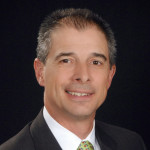 For the last three years I’ve taken a week in January to write. Friends from my “Preacher Camp” have been part of this retreat, and as I type these words I’m again looking out a beautiful bay window of a little farm house that rests peacefully on the bank of the Choptank River, an hour east of D.C.
For the last three years I’ve taken a week in January to write. Friends from my “Preacher Camp” have been part of this retreat, and as I type these words I’m again looking out a beautiful bay window of a little farm house that rests peacefully on the bank of the Choptank River, an hour east of D.C.
The wood stove behind me creaks softly as the warming metal pings and rings from a new load of split oak. Jenny, a beautiful and energetic golden retriever occasionally stirs the air as she rises to stretch or to nudge me in playful invitation. John is sitting by the fire ruffling through some pages of his current creativity. Otherwise the air is quiet. The world is at peace.
Or not. But it’s an illusion I need to enjoy for a few short days.
It’s not a feeling I’ve been able to muster through the last fortnight. The chaos constantly emanating from the White House sent a new series of disturbing ripples through the air two weeks ago, and they instantly expanded around the globe in enveloping, concentric circles of disbelief and anger and fear.
Since that disturbing Oval Office pronouncement there have been thousands of opinions written across the political spectrum, endless hours dedicated to punditocracy in the marketplace, countless words of pulpiteering offered by the Church.
And I’ve been afraid to speak.
This national moment may be an all-time low during my adulthood. Yes, there have been egregious presidential sins in my lifetime (red and blue), lies and fraud and corruption and abuse, but none of those individual failures has so captivated the entire nation in a descending vortex of disrespect and division and dissonance. And given the dysfunction of the cultural moment, none has had any more potential to become part of our moral or spiritual undoing.
And I’ve been afraid to speak.
Some say the whole issue is overblown, but civility and decency are too important to the soul of a nation for people with any respect for their government or for their own honor to ever take this kind of behavior lightly.
Some say he didn’t say it, but we’ve all heard so much that sounds just like this, and his “base” loves it precisely because they know he said it. No, the denials are another unfortunate distraction, and yet another assault on truth, which threatens the integrity of a people.
Some agree he said it, but claim he wasn’t being racist. But to be not-racist requires a concern for the racism that still casts a shadow of doubt on our claim that all are “created equal” — by being consistent and careful with the power of words. To be unaware of the harm of stereotypes or careless with the hurt of generalizations of words is to make real the hypocrisy of hollow claims. In the absence of a history that can be confirmed with integrity, words may actually speak louder than actions.
Some say it’s just more locker room talk, but coarse vulgarity is a sad part of the American vernacular — no one even raises an eyebrow anymore — so it’s hardly the profanity that should concern us. But any policy that would judge people’s worth by their national origin or their religion or by the color of their skin, not the content of their character, is a threat to our faith as well as to our only, true American exceptionalism:
Give me your tired, your poor, your huddled masses yearning to breathe free,
the wretched refuse of your teeming shore,
send these, the helpless to me.
I lift my torch beside the golden door.
The “Harbor Lady” stands knee-deep in Atlantic waters to beckon the people of the world to “life, liberty, and the pursuit of happiness.” She stands to offer the least of these an opportunity to join the exceptional experiment called democracy, not because they are worthy but because democracy, like faith, has the power to make us free to share and unafraid of any tomorrow — if we actually practice it. Any policy in contradiction to her light of welcome is as unpatriotic as it is unchristian.
So, I said it. And now I’m afraid that I’ve spoken.
It’s just that at this moment in our fragile history, I’m even more afraid to remain silent.
